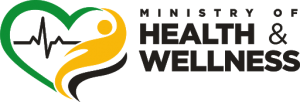Jamaica’s HIV landscape includes features of both a generalized and concentrated epidemic. This accounts for a low in HIV prevalence among the adult population of 1.7% to a high among men who have sex with men (MSM) of 32%. Currently, there is an estimated 32,000 persons living with HIV (PLHIV), half of which is unaware of their status. Since January 1982 and December 2010, twenty seven thousand two hundred and seventy two cases (27,272) of HIV were reported to the Ministry of Health (AIDS Report, 2010).
High risk behaviour such as early sexual debut, multiple sexual partners, high levels of transactional sex, gender inequalities, inadequate condom use and homophobia continue to fuel the transmission of HIV and STIs, (MoH, 2010). The HIV epidemic is also closely tied to poverty and related development issues, including the slow rate of economic growth, high levels of unemployment, low educational attainment especially among males, and crime and violence. Moreover, the epidemic threatens national productivity because the majority of cases occur in the reproductive and working age groups.
As such, the national HIV response focuses equally on preventing the further spread of the epidemic, supporting better care for those infected and affected by HIV, and building capacity and resilience to withstand the impact of AIDS through several priority areas. These include:
- Expansion of prevention programmes especially among most at risk populations (MARPs) including direct and targetted risk reduction messages, access to testing and peer counselling.
- Strengthening of positive health dignity and prevention programmes particularly among most at risk populations including increased care and support for adolescents living with HIV and AIDS.
- Scaling up of HIV testing, particularly among most at risk populations and hospital admissions in order to identify persons most in need of treatment and delay progression to AIDS.
- Scaling up HIV management and emphasis on care and support.
- Improved management of STIs.
- Continued capacity building for stakeholders on monitoring and evaluation through widespread training and use of technical assistance.
- Increased dissemination and utilization of data for programme planning and understanding the epidemic.
- Improved understanding of the context of stigma and discrimination through national surveys; expansion of the system for reporting and redress to reduce stigma and discrimination in all settings.
- Increased advocacy among high level leadership for improved socio-economic policy initiatives and legislative changes to reduce vulnerability to HIV including policy development in various sectors; and
- Strengthen partnerships and communication mechanisms with key stakeholders in the national response.
Jamaica like other countries is concerned about the potential impact of the global financial crisis on the sustainability of its national response to HIV. In particular, there are concerns about the ability of the Ministry of Health to meet its responsibilities as part of the national HIV response to not only achieve the universal access targets, but also to sustain gains already achieved and maximize the efficiency and benefits of current and future investments. Currently, the National HIV/STI Programme (NHP) is largely funded by a US$40 million grant from the Global Fund supported project 2008 – 2013. Other funding sources include the Government of Jamaica, a World Bank Loan and a USAID Grant. Funding has also been made available from the European Union (EU), UN Women, CHAI, Pan American Health Organization/World Health Organization (PAHO/WHO), the Caribbean Epidemiology Centre (CAREC), UNAIDS, UNFPA and UNICEF.
